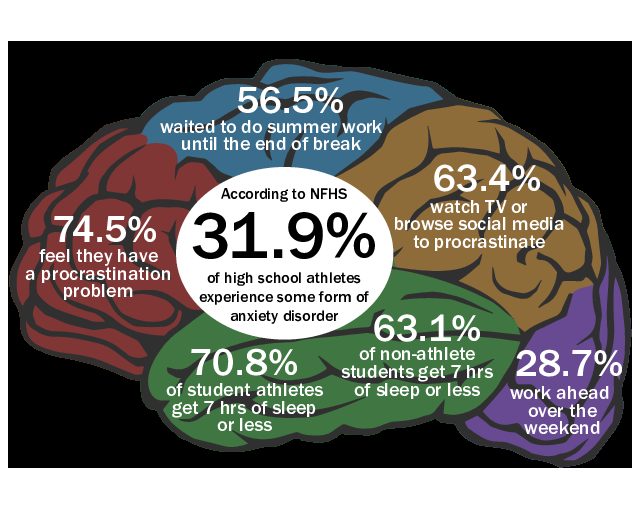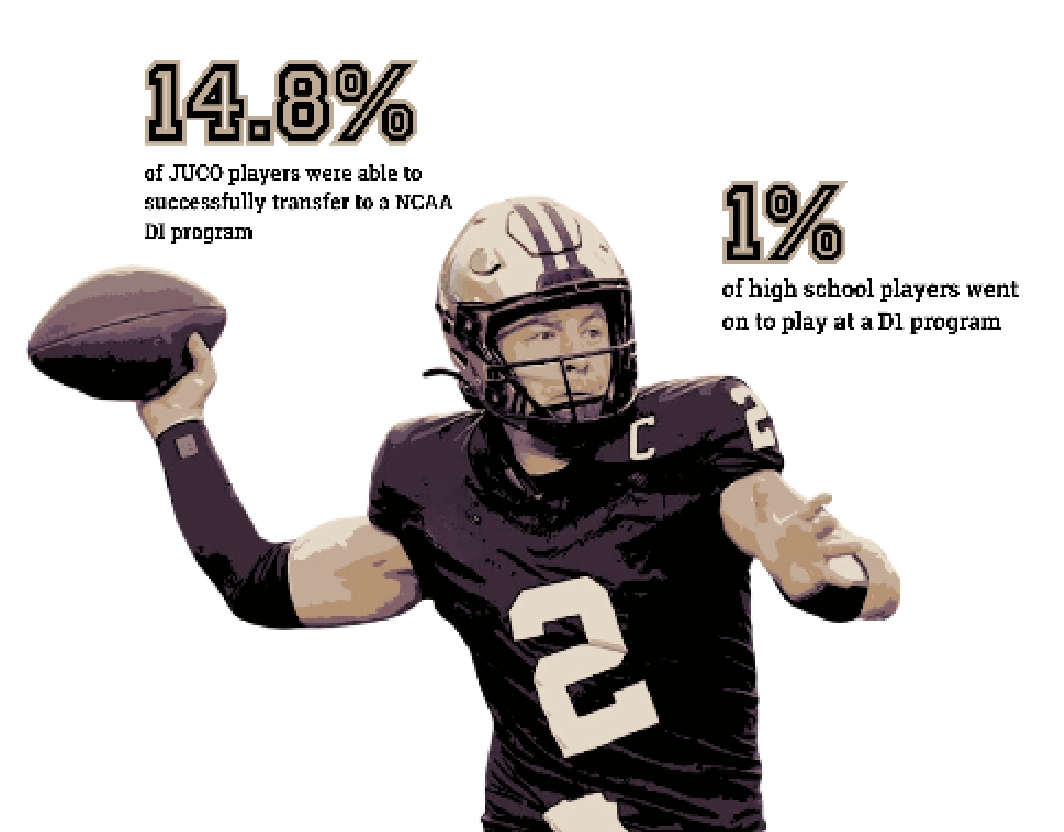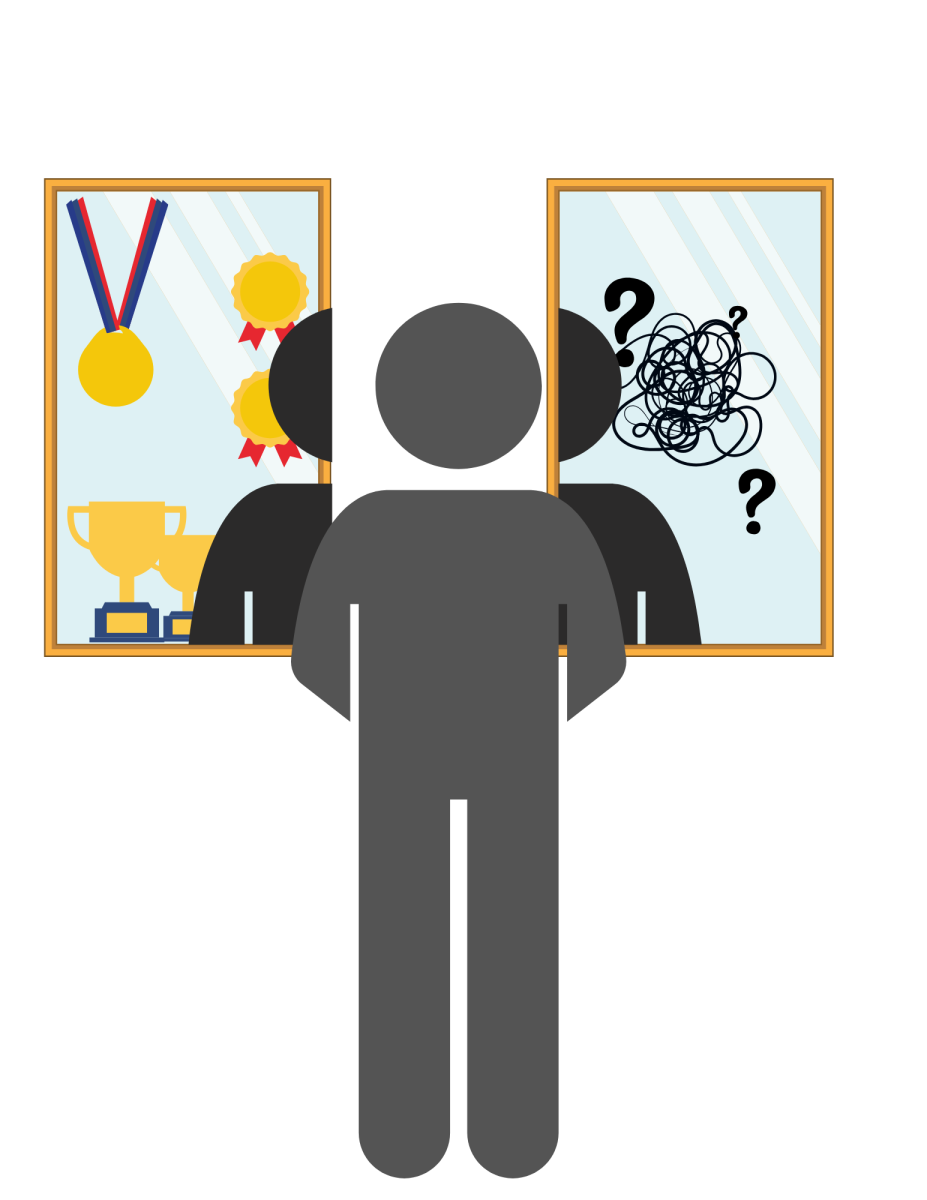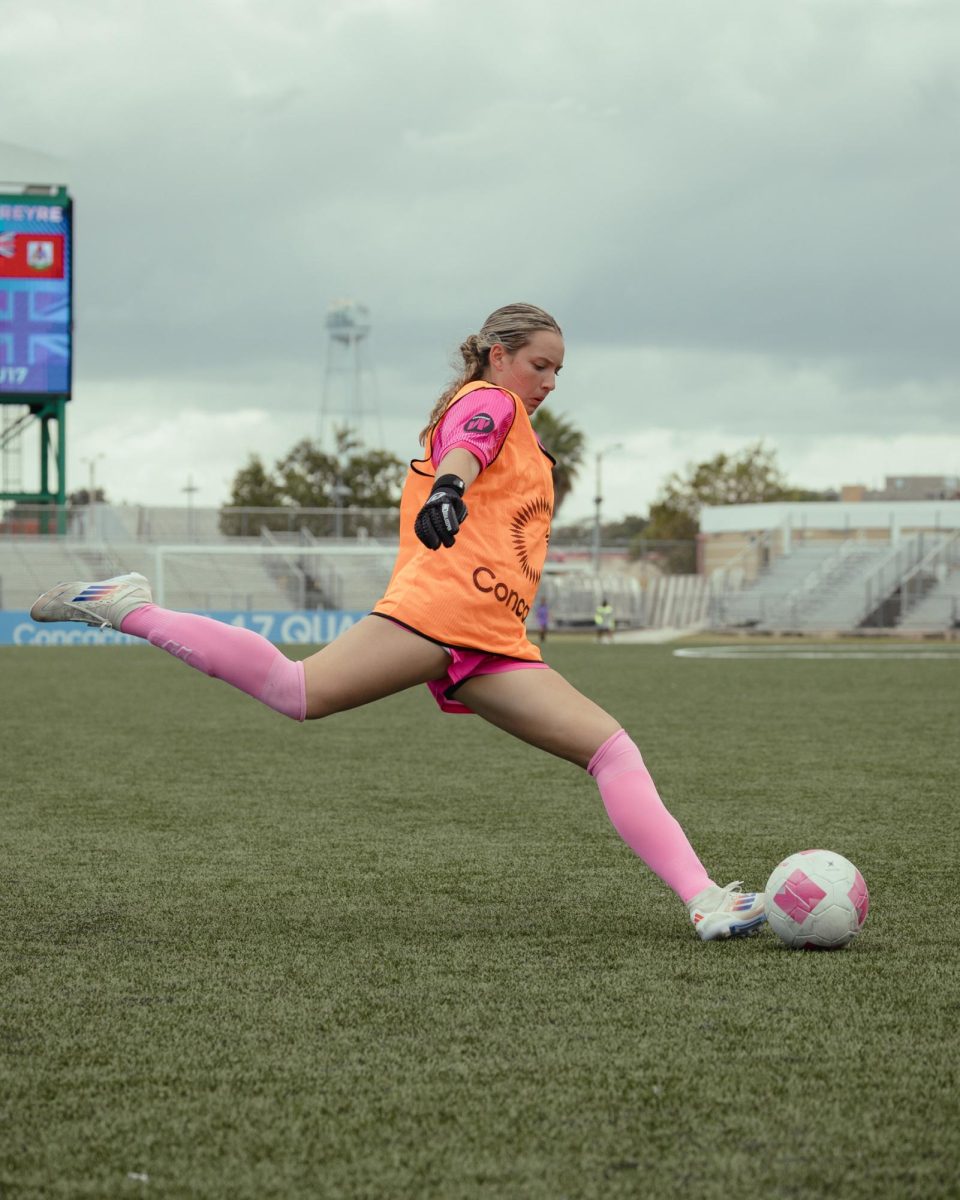Senior basketball player Javon Bennett gets home from a hard day of practice feeling exhausted. The only thing on his mind is getting as much sleep as he can before morning workouts the next day. Instead, he spends the rest of the night finishing his homework, studying for his math quiz and completing his English essay.
This situation is familiar to the many student athletes on campus who often feel overwhelmed by the stresses of school and athletics. Among those students is senior weightlifting and track member Hannah Yared. Yared said that she has a difficult time focusing on athletics because of the work that she has to do when she gets home.
“A lot of times, I’ll have so much homework that I’ll be thinking about it during practice,” Yared said. “If I’m overly stressed with the workload, it’ll always be on my mind. Sometimes even during games. I know it isn’t a good thing, but sometimes I can’t get the work out of my head.”
Student athletes on campus often feel the pressure of living up to the high expectations set for them on the field and in the classroom. The pressure and stress that builds up leads to a much bigger issue in the world today: mental health in athletics.
Mental health awareness is a rising trend in the sports world today. Recent professional athletic figures including women’s tennis star Naomi Osaka and Olympic Gymnast Simone Biles have opened up about their recent struggles with living up to the high expectations set for them in professional sports. The publicity of what they are going through proved that mental health is an issue that can affect all people.
Many students on campus need help dealing with the stress involved in school and sports. Guidance Counselor Rylan Smith said that she is approached frequently by student athletes who are dealing with stress. In order to help the students, she mainly focuses on building a schedule, as it helps ensure that they are not procrastinating to the point where they get overwhelmed with work late at night.
“I am often approached by students who are trying to manage the stress in schoolwork and athletics,” Smith said. “I typically work with them on some time management skills and getting them to find some life balance, but also helping them to recognize that it is impossible to do everything.”
Even with the improvement of time management, athletes can still fall behind on work. Bennett said that he sometimes lacks motivation to complete his assignments. He relies on his teachers, friends, and parents to help him stay focused on school.
“When I get home from practice, I don’t really feel like doing anything,” Bennett said. “A lot of times, I feel like I can put schoolwork to the side, but my parents and teachers always remind me to get my assignments done.”‘
Many athletes on campus feel the same struggle of a lack of motivation. Smith said that the best way for athletes to remain focused is to get into healthy routines.
“I think the best thing you can do is to come up with a schedule that encourages you to stay focused,” Smith said. “I encourage a lot of athletes, when they get home, to go shower, go do their thing, wake up a little bit, re-energize a little bit, and then buckle down and do your work. But don’t put it off until 10 or 11 o’clock, because then you’re going to be up all night.”
In order to maintain focus and remain determined in school, athletes need the most sleep they can get. Bennett said that he only gets five hours of sleep on a regular school day, three hours less than the recommended amount for high schoolers. The lack of sleep affects his performance on the court and in the classroom. The feeling of restlessness is not uncommon amongst high school athletes.
According to a survey conducted on 156 Trinity Prep athletes, only 5.1% get the recommended amount of sleep for teenagers. Smith said that sleep is a key component in performance, and when a student isn’t fully rested, their production could decrease.
“Anytime you’re not getting enough sleep, that definitely affects your performance in school and athletics,” Smith said. “Sleep is critical, especially for students of this age group. I think that’s why time management is so important; because you have to be able to know your priorities.”
All of the factors that tie into stress feed into an increase in mental health cases amongst student athletes. Yared said that mental health in high school athletes is a topic that is very important, and that athletes should not let the pressure involved in sports get to them.
“When it comes to mental health in high school athletes, it is a topic that shouldn’t be overlooked,” Yared said. “I can definitely, you know, feel the stress involved in balancing academics and athletics, but I believe that I am doing the best I can to get the grades I want and perform well in my sports.”















